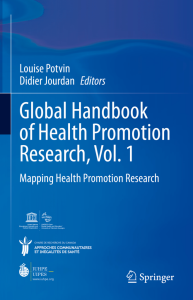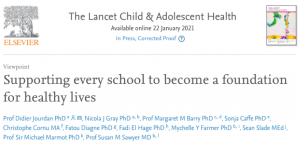While the tobacco and fossil fuel industries have used youth education programmes and schools for decades to disseminate product-friendly discourses, ideas and values favourable to their positions, there has been no systematic research specifically on youth education programmes funded by the alcohol industry.
The article published on 12 January 2022[1] provides a detailed review of three school-based youth education programmes on alcohol consumption and health harms.
The analysis shows that the educational materials are limited to a restrictive understanding of the problem and its causes, focusing on personal responsibility and moderate alcohol consumption. Peer pressure and “bad choices” are cited as causes of the problem, with little or no mention of alcohol industry marketing or other practices.
All programmes present alcohol as a product that young people should learn to consume ‘responsibly’ as adults, thus promoting familiarisation and normalisation of alcohol consumption. The discourses also rely on selective presentation of harms, including misinformation about the risk of cancer. The research was limited to an analysis of teaching materials and further research is needed to explore their impact on youth, teachers and wider social norms and discourses.
This study thus reveals considerable conflicts of interest in the implementation of alcohol education programmes in schools (intermediary) funded by the alcohol industry. These programmes are intended to educate young people about the harms and consequences of alcohol consumption, but they primarily encourage moderate and ‘responsible’ drinking, focusing on individual behaviour and choices. These programmes do not empower children and young people to understand and think critically about alcohol and to protect them from alcohol-related harms.
The authors warn that children and young people are being exposed to such conflicted and misleading materials. They call for urgent attention from policy makers, practitioners, teachers and parents, and to end the use of these industry-funded resources in schools.
[1] van Schalkwyk MCI, Petticrew M, Maani N, Hawkins B, Bonell C, et al. (2022) Distilling the curriculum: An analysis of alcohol industry-funded school-based youth education programmes. PLOS ONE 17(1): e0259560. https://doi.org/10.1371/journal.pone.0259560


 About Didier Jourdan
About Didier Jourdan
